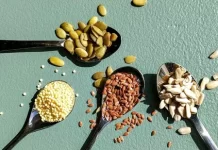“Plants are not only a source of oxygen we inhale or food we take,
But their greenery makes the world worth living ; not unanimous & fake”
A life without passion and favouritism is no more than a monotonous expedition. Everyone has his own personal set of things which are his priorities. To be happier, It’s becomes the goal of everyone to convert these passions into some work to earn his living.
Watching the tall trees planted on the side of road makes no difference to many, but for some even a miniature plant with few leaves can provide immense pleasure. More fascinating is the journey to watch them growing from a tiny seed to a full fledged adult tree. Those who enjoy witnessing this journey are certainly in love with these creatures and have the hobby of Gardening. It is a time pass for some while a time engrossing habit for others. They grow anything ranging from beautiful ornamental ones to those providing fruits and veggies. Gardening is more often considered as an hobby rather than a career. But if we peep into it and throw our self completely in this field, it can prove to be a potentially beneficial profession. Just what is required here is to add scientific approach to this homely work and thus convert Gardening into the so called Horticulture.
HORTICULTURE:
The application of knowledge, skills and technology to intensively grow produced plant for all purposes, be it human or non human is included in Horticulture. The term is derived from two words ‘Hortus’ means Garden and ‘cultus’ means Cultivation. Its aim is to improve the quality, growth, yield, nutritional value and pest resistance of every plant. It also includes landscape restoration, plant conservation, soil management, landscape and garden design, construction and maintenance. So to be precise, Gardening may be considered as a small portion of Horticulture.
Here, important point to be mentioned is that it is quite different from Agriculture which does not solely deal with plants but animal husbandry is its integral component and also the latter is associated with very large scale production of crops usually of a single type while the former deals with cultivation of multiple crops or varieties in smaller area. It’s a rapidly advancing industry in today’s era. The horticulture sector constitutes nearly 20 percent of agricultural GDP and contributes 4 percent in the national economy. Anyone who loves the vicinity of herbs and shrubs will surely find it an amazing option.
SCOPE
As a huge tree spreads out its branches, this study also deals with various aspects of our flora. And it is absolutely upto one’s interest that what he wants to study and practice in detail. But literally, there are no restrictions whether to study some or many of them as all are somewhat interconnected.
There are numerous sub branches or divisions of this vast and extensive subject. It may me broadly classified into the following:-
Arboriculture : the study of plant care, and removal of individual trees, shrubs, vines, and other perennial woody plants.
Turf management: All aspects of the production and maintenance of turf grass for sports, leisure use or amenity use.
Floriculture : The production and marketing of floral crops & Study of flower cultivation.
Landscape horticulture :The production and maintenance of landscape plants.
Olericulture : The production and marketing of vegetables.
Pomology : The production and marketing of fruits or cultivation of fruits
Viticulture : The production and marketing of grapes.
Oenology : All aspects of wine and winemaking.
Postharvest physiology : Maintenance of the quality and prevention of the spoilage of plants.
The demand for Horticulturalists is on a rise in the nation. The government expects more youth power to be affiliated to this field. Thus it offers variety of educational courses related to it.
COURSES & ELIGIBILITY
If anyone wishes to build career in plants, it is not quite difficult because unlike JEE or NEET, there isn’t any cut throat competition here. It is a growing field but still, not many aspirant decide to chose it as a primary arena, thus taking advantage of this fact the passionate students must work hard to enter as well as excel in it.
Any student who has passed his 12th standard with science stream (PCM/PCB) is eligible for the courses. Though it is not astonishing to see more Biology students opting for the courses as it is their natural interest. Like any other course, Horticulture also first has its Bachelor degree followed by Master degree or any diploma and finally a Ph.D. degree.
Bachelor’s Courses:
• B.Sc. (Bachelor of Science) Horticulture (3 years)
• B.Tech(Bachelor of Technology) Horticulture (4 years)
Master’s Courses:
• M.Sc. (Masters of Science) Horticulture ( 2 years)
• PG Diploma in Horticulture and Landscape Gardening (1 year)
• M.Sc. Ag. (Floriculture and Landscaping) – (2 years)
For admission to postgraduate courses, one has to pass the bachelor’s degree in the relevant discipline with minimum 60% marks.
Ph.D. Courses
Various universities offer the highest course by their own entrance exam. Students who are interested in advancement of their knowledge, job and salary opt for this Doctorate degree.
PROCESS OF ADMISSION:
As already stated eligibility for admission is passing 12th class with science stream. The admission criteria and procedure is quite variable from institutions to institutions. Some colleges conduct their own entrance test for providing admission while others serve admission through the Annual entrance test namely ICAR AIEEA conducted by ICAR.
The annual fee of the B.Sc. course may range from Indian rupees 5,000 to about 5,00,000 while that of a M.Sc. course vary from Indian rupees 2,000 to 80,000 depending upon the college or University.
Everyone dreams of his or her dream college to gain knowledge. And a firm determination towards any particular college or university makes them work restlessly to reach at the doorstep of their aim. There are many universities or colleges in our nation that offer education in this field and are well known for this. Some famous ones are listed below:
• Indian Agricultural Research Institute, New Delhi.
• University of Agricultural Sciences, Bangalore
• College of Horticulture, Kerala
• Tamil Nadu Agricultural University, Coimbatore
• Gujarat Agricultural University, Anand
• Aligarh Muslim University, Aligarh
• Annamalai University
• College of Agriculture, Pune
• Lovely professional University, Punjab.
• Punjab Agricultural University, Ludhiana.
RELEVANT BOOKS:
“Books are a person’s best friend”—is often heard by us but many doubt the genuineness of this saying. It is an absolutely valid as well as precious thought. A good book is next to a brilliant teacher. Thus standard books of relevant subjects are very helpful to make the concepts clear and strong. Some of the important books for the better understanding of topics are:
Introductory Horticulture – H. Edward Reiley, Carroll L. Shry, JR.
Control of Crop Diseases by W.R. Carlile
Handbook of Horticulture -by K.L. Chadha
Instant Horticulture – S.N. Gupta, K.B. Naik
The Fundamentals of Horticulture – Chris Bird
Principles of Horticulture – C.R. Adams, K.M. Bamford & M.P. Early
Seed Storage of Horticulture Crops by S.D. Doijode
Applied Principles of Horticultural Science – L.V. Brown
SYLLABUS
While the Bachelor’s degree ensures strong concept building and introduction in the newly chosen field, the Master’s degree focuses on strengthening the practical approach or the application of all the gained knowledge in different aspects.
B.Sc. comprises of 6 semesters with various books and topics in them thus making the syllabus queue quite lengthy to be described here.
Instead, the entire Syllabus of all the 4 semesters ( 2 years) of the Master degree in Horticulture is given below. Timely modifications are made in the subjects and their contents which can be verified by the respective college.
Semester 1
• Plant Physiology
• Plant Biochemistry
• Plant Microbiology
• Plant Genetics
• Plant Biotechnology
• Plant molecular biology
Semester 2
• Plant breeding
• Seed technology
• Agronomy
• Agricultural chemistry
• Agricultural meteorology
• Soil science and engineering
Semester 3
• Plant pathology
• Entomology
• Agricultural extension
• Agricultural economics
• Post harvest technology
• Fertilizer technology
Semester 4
• Plantation management
• Floriculture
• Landscape architecture
• Field study
• Medicinal and Aromatic plants
• Thesis
JOBS & SALARY
After capturing enough knowledge on different topics of your choice, you need to shift your focus towards getting the output of all that is invested. Its the time to decide which job profile exactly suits you so that you may apply for it. It should satisfy you and also do justice to your entire education. There are plenty of opportunities and career tracks in the horticulture line. Many options are available for graduates in this unique field. Impressive jobs are available in both public and private sector.
• One can apply for the District Horticulture Officer through the examination conducted by Public Service Commission. Other than this, one can also apply for the post of Technical Assistant or Officer in Agricultural Universities like ICAR, DRDO & CSIR. Moreover a trained person can also work as a designer or contractor for landscaping projects in the companies dealing with seeds, fertilizers, pesticides and other related branches of horticulture.
• Like any other profession one can also choose his career in the education sector as a professor. Yet another brilliant option is for those holding PhD degree. They can apply for the examination conducted by the Agriculture Scientist Recruitment Board, ICAR, New Delhi. This examination is conducted for the post of the scientists and researchers.
• Thus overall there are ample work areas for any well graduate person. It can be any like Sales & Marketing, Teaching, Farming, Irrigation Department, Research Area and Projects.
• The salary will depend upon the area of specialization, qualifications, location, level of education, etc. As a beginner, one can earn 2 to 3 lacs per year. After gaining experience, you will get the hike in your salary. District Horticulture Officers receives an monthly salary of 25,000 Rupees as a fresher.
• There are various companies and firms that recruit such individuals. Some of the popular ones are: Sun Valley Landscaping Interior Plants capes, IFFCO KISAN SANCHAR LIMITED, Greater Texas Landscape Services, Casa Verde Growers, Green Decor etc.
OTHER OPPORTUNITIES:
“Keep the head high, boost up the confidence, and you will surely find a way,
Principle of this jorney should be to mark the presence wherever you stay”
When one has a pure soul in a tirelessly working body, destiny do pave their way towards something better and deserving. So if one doesn’t get the above described job, he must not be distressed. Persistent working for accomplishment of a proffession is needed to be prospersous in the life.
So there are multiple other opportunities in different unique places and platforms:
Agriculture Management: Students possessing knowledge of management and agriculture are the need of this industry and can portray their career here.
Corporations: Professionals from this sector can seek employment in Warehousing Corporation , Food Corporation and State & National Seed Corporation.
Estates and tea gardens: one can seek job in tea gardens which also offer great remuneration.
Agricultural Engineering: This sector deals with conservation of soil, power water and agricultural machines, . Engineering graduates can venture into this field.
Services Sector: This field revolves around fertilizers, seeds and chemicals. Their aim is to serve these items at reasonable price and also to provide quality food products.
Agro-industry Sector: This sector revolves around many processes like dairy and grain processing, meat packaging, fibres, fats & oils production, pesticides and other such products. There is scope for research in this field and also requires sales and promotion, technologists, researchers and scientists.
Self employment: Like most other graduates, one can start his own business such as agriculture product shops, agri-base industry etc.
IMPORTANCE
India is a gigantic nation with an overwhelming population of flora and fauna. Presently, it is next to China in the production of fruits and vegetables. 10% of fruits and 14% of vegetables of the world production comes from our nation. India even leads the world in Mango, Sapota, Cauliflower, Banana and some other food items production in the world.
Despite all these favourable factors, the desired level of development in horticulture has not still been achieved because of number of constraints like low productivity of many fruits and vegetables than international averages, Non availability of good planting material, lack of post harvest management and less value addition etc. These all problems ultimately lead to poor crop quality and decreased productivity. Hence the need of this hour is to get a boom in such youth talents who can give new directions to these aspects. They can find new and better ways to get the best yield out of the crops.
In addition to this, the shifting of trend from non vegetarian to almost a vegan diet require all the essential vitamins and minerals to be packed inside the growing crops like vegetable and fruits. This again becomes the responsibility of a person linked with this job. Its really quite an amazing feeling to live your dream or enjoy the hobby and simultaneously serve the nation as well as the mankind. For the majority, this job wouldn’t take you to the extreme heights in terms of Money and fame but will provide the inner peace and satisfaction of pursuing what you loved the most, and no other feeling can beat this one.










